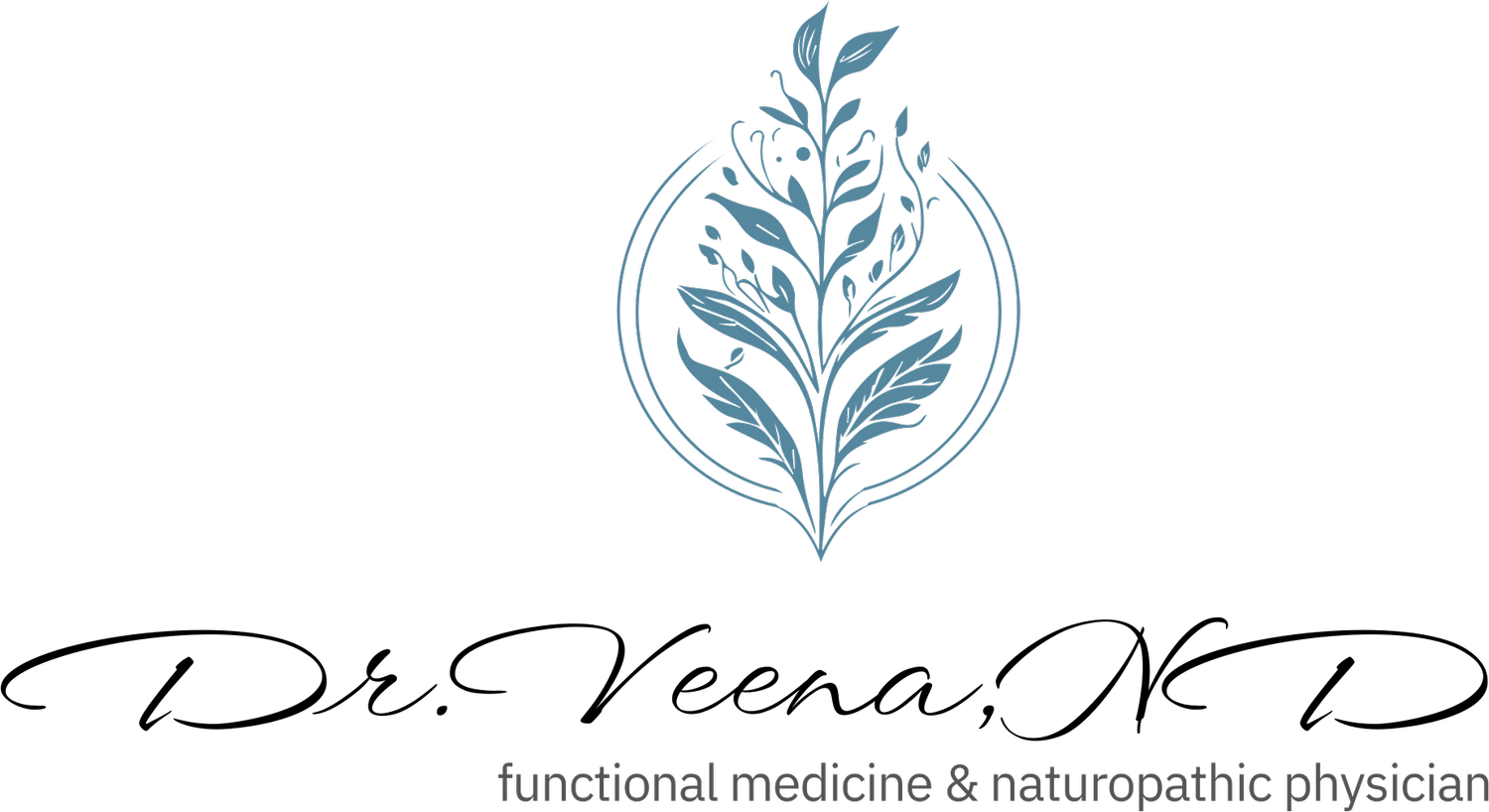The Complete Guide to Balancing Hormones Naturally in Your 30s, 40s, and 50s
Hormones are your body’s chemical messengers. They regulate energy, metabolism, mood, sleep, cycles, weight, and even brain health. When they’re balanced, you feel strong, focused, and vibrant. When they’re out of balance, everything feels harder, from getting through the workday to managing your relationships.
For women, hormone changes accelerate in your 30s, 40s, and 50s, often leading to symptoms that are dismissed as “just getting older.” But the truth is you don’t have to suffer through hormone shifts. With the right knowledge and natural strategies, you can support your hormones and feel your best at every stage.
This guide will walk you through what’s happening in each decade and what you can do to restore balance naturally.
Your 30s: Laying the Foundation for Hormone Balance
Your 30s are often a busy decade — careers, family, and responsibilities are in full swing. Biologically, your reproductive hormones are still active, but subtle shifts begin that can set the stage for imbalances.
Common Hormone Changes in Your 30s
Progesterone may start to dip, especially if stress is high.
Cortisol (your stress hormone) often runs too high or too low.
Insulin resistance may begin if diet and sleep are off.
Signs of Imbalance in Your 30s
PMS or worsening cramps
Irregular cycles
Anxiety or mood swings
Trouble conceiving
Fatigue despite sleeping
How to Support Your Hormones Naturally in Your 30s
Prioritize Sleep: Aim for 7–9 hours; bedtime before 11 p.m. supports melatonin and growth hormone.
Eat Balanced Meals: Focus on protein + fiber + healthy fats to keep blood sugar stable.
Stress Management: Yoga, meditation, or even 10 minutes of deep breathing lowers cortisol. Whatever you enjoy doing, carve out time for yourself.
Support Progesterone Naturally: Magnesium, B vitamins, Zinc and stress reduction help keep cycles regular.
Limit Toxins: Swap plastics for glass, avoid synthetic fragrances, and eat organic.
Your 40s: Navigating Perimenopause
In your 40s, perimenopause often begins, sometimes as early as your late 30s. This is the transition before menopause when estrogen and progesterone fluctuate wildly.
Common Hormone Changes in Your 40s
Progesterone declines further, making estrogen dominant.
Estrogen levels swing high and low, creating unpredictable symptoms.
Thyroid function may slow, adding to fatigue and weight gain.
Signs of Imbalance in Your 40s
Heavier or irregular periods
Hot flashes or night sweats
Mood swings, irritability, or anxiety
Weight gain (especially around the belly)
Brain fog or forgetfulness
Sleep disturbances
How to Support Your Hormones Naturally in Your 40s
Balance Blood Sugar: Stable blood sugar reduces hot flashes and mood swings.
Exercise Smart: Strength training + walking support metabolism without overloading cortisol.
Prioritize Protein: 20–30 grams at each meal maintains muscle and energy.
Liver Support: Leafy greens, cruciferous veggies, and hydration help metabolize excess estrogen.
Mindful Stress Reduction: Cortisol spikes worsen perimenopause symptoms — make stress relief a daily ritual.
Your 50s: Embracing Menopause and Beyond
By your 50s, most women enter menopause, defined as 12 months without a period. Estrogen and progesterone decline, while testosterone and DHEA also dip. These changes can affect bone, heart, brain, and metabolic health.
Common Hormone Changes in Your 50s
Estrogen remains low (causing hot flashes, dryness, bone changes).
Progesterone is minimal.
Cortisol and insulin issues often worsen if lifestyle isn’t addressed.
Signs of Imbalance in Your 50s
Hot flashes and night sweats
Vaginal dryness or discomfort
Low libido
Weight gain, especially belly fat
Bone loss or osteoporosis
Memory lapses
How to Support Your Hormones Naturally in Your 50s
Strength Training + Weight-Bearing Exercise: Protects bones, supports metabolism, and helps improve testosterone levels.
Bone-Supportive Nutrition: Calcium-rich foods, vitamin D, vitamin K and magnesium are essential.
Heart-Healthy Habits: Fiber, omega-3s, and daily movement protect cardiovascular health.
Prioritize Sleep Hygiene: Cool bedroom, calming evening rituals, and limiting alcohol improve rest.
Explore Natural Support: Herbs like black cohosh or adaptogens (ashwagandha, rhodiola) may ease symptoms, though testing and guidance are key.
Lifestyle Strategies for All Decades
No matter your age, certain core habits help balance hormones at any stage:
Eat Real Food: Minimize processed sugar, alcohol, and refined carbs. Plant forward with protein.
Stay Hydrated: Water supports energy and detox.
Move Daily: A mix of strength, cardio, and stress-relieving movement keeps hormones in check.
Limit Endocrine Disruptors: Clean beauty, clean cleaning products, and filtered water matter.
Get Support: Functional testing can uncover what’s really happening with estrogen, progesterone, thyroid, cortisol, insulin, and hormone metabolites.
The Power of Functional Medicine for Hormone Balance
Many women are told their symptoms are “normal” or “just part of aging.” But functional medicine looks deeper. Through advanced testing and a personalized plan, we can uncover what’s driving your symptoms and restore balance naturally.
Final Thoughts
Your 30s, 40s, and 50s bring unique hormonal challenges, but they’re also opportunities. By tuning into your body, making small lifestyle shifts, and getting the right support, you can thrive through every season of life.
You don’t have to accept fatigue, weight changes, or mood swings as inevitable. With the right strategies, balanced hormones = a vibrant, energized you.
